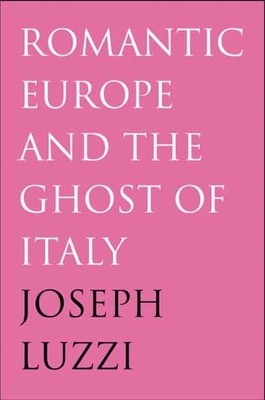
- We will send in 10–14 business days.
- Author: Joseph Luzzi
- Publisher: Yale University Press
- ISBN-10: 0300123558
- ISBN-13: 9780300123555
- Format: 16 x 23.4 x 2.5 cm, hardcover
- Language: English
- SAVE -10% with code: EXTRA
Reviews
Description
In this groundbreaking study, unique in English, Joseph Luzzi considers Italian Romanticism and the modern myth of Italy. Ranging across European and international borders, he examines the metaphors, facts, and fictions about Italy that were born in the Romantic age and continue to haunt the global literary imagination.
The themes of the book include the emergence of Italy as the "world's university" (Goethe) and "mother of arts" (Byron), the influence of Dante's Commedia on Romantic autobiography, and the representation of the Italian body politic as a woman at home and abroad. Luzzi also provides a critical reevaluation of the three crowns of Italian Romantic letters--Ugo Foscolo, Giacomo Leopardi, and Alessandro Manzoni--profoundly influential writers largely undiscovered in Anglo-American criticism. Reaching out to academic and general readers alike, the book offers fresh insights into the influence of Italian literary, cultural, and intellectual traditions on the foreign imagination from the Romantic age to the present.
EXTRA 10 % discount with code: EXTRA
The promotion ends in 18d.16:27:49
The discount code is valid when purchasing from 10 €. Discounts do not stack.
- Author: Joseph Luzzi
- Publisher: Yale University Press
- ISBN-10: 0300123558
- ISBN-13: 9780300123555
- Format: 16 x 23.4 x 2.5 cm, hardcover
- Language: English English
In this groundbreaking study, unique in English, Joseph Luzzi considers Italian Romanticism and the modern myth of Italy. Ranging across European and international borders, he examines the metaphors, facts, and fictions about Italy that were born in the Romantic age and continue to haunt the global literary imagination.
The themes of the book include the emergence of Italy as the "world's university" (Goethe) and "mother of arts" (Byron), the influence of Dante's Commedia on Romantic autobiography, and the representation of the Italian body politic as a woman at home and abroad. Luzzi also provides a critical reevaluation of the three crowns of Italian Romantic letters--Ugo Foscolo, Giacomo Leopardi, and Alessandro Manzoni--profoundly influential writers largely undiscovered in Anglo-American criticism. Reaching out to academic and general readers alike, the book offers fresh insights into the influence of Italian literary, cultural, and intellectual traditions on the foreign imagination from the Romantic age to the present.


Reviews